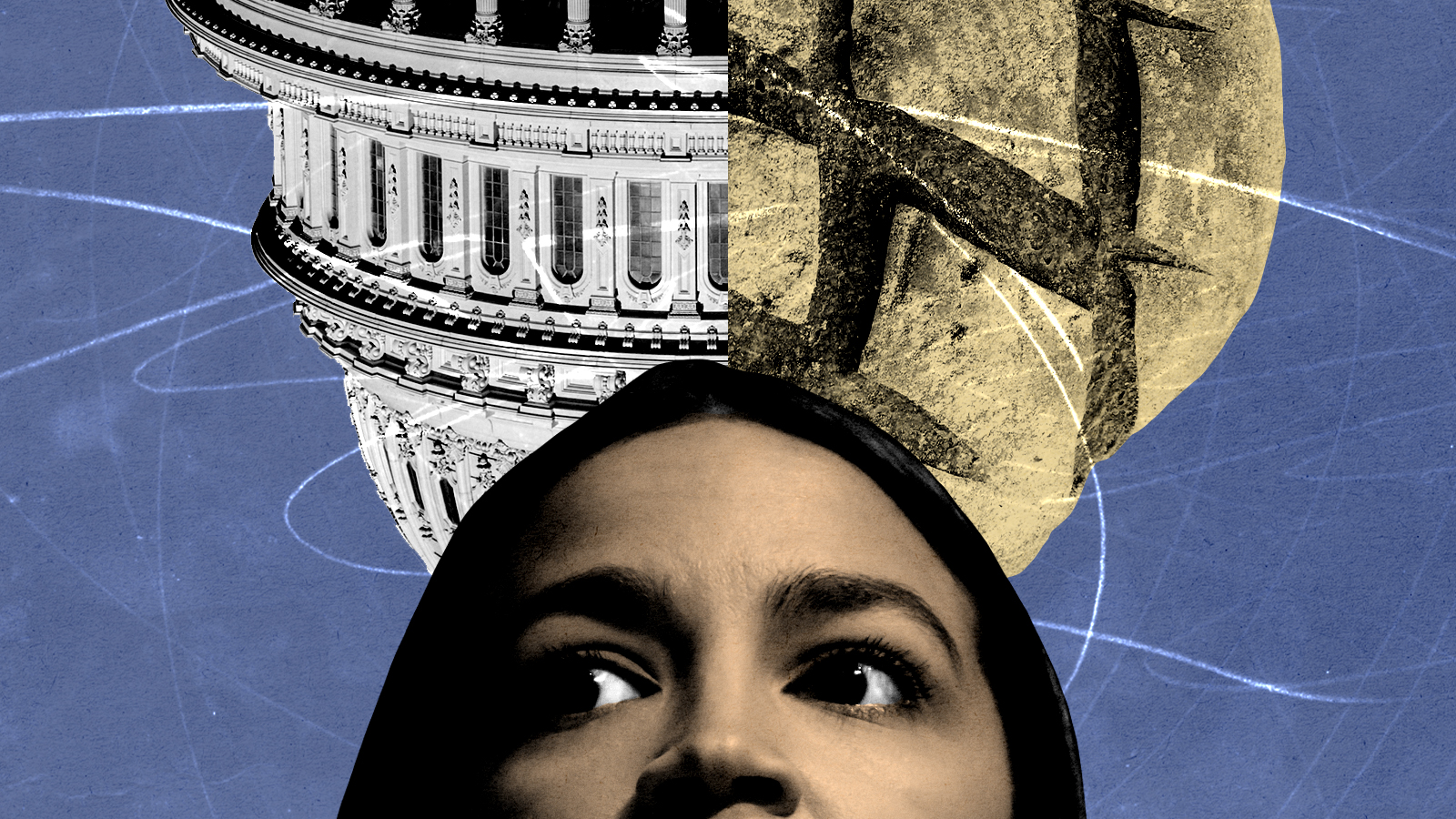Will progressives really reject the biggest half a loaf in history?


A free daily email with the biggest news stories of the day – and the best features from TheWeek.com
You are now subscribed
Your newsletter sign-up was successful
By any standard, the $3.5 trillion budget package announced by Democrats on Tuesday is a big (bleeping) deal: Its provisions reportedly include making two years of community college free to all Americans; long-term expansion of the new $300-a-month child tax credit; expansion of Medicare to provide dental, vision and hearing benefits; continuation of pandemic-era subsidies for health insurance purchased through the Affordable Care Act; and a number of hazily defined "climate provisions." If passed, the proposal would enact a remarkable expansion of the welfare state in America — one more sign that "the era of Big Government is over" is over.
It might not be enough for the progressive wing of the Democratic Party.
"Many in the Squad and Squad-adjacent will vote no," an anonymous "progressive lawmaker" told CNN after the package was announced. The lawmaker called the proposal a "capitulation by progressives" who started out the process aiming for a whopping $6 trillion plan.
The Week
Escape your echo chamber. Get the facts behind the news, plus analysis from multiple perspectives.

Sign up for The Week's Free Newsletters
From our morning news briefing to a weekly Good News Newsletter, get the best of The Week delivered directly to your inbox.
From our morning news briefing to a weekly Good News Newsletter, get the best of The Week delivered directly to your inbox.
Now this might be a negotiating tactic — a ploy to make moderate Democrats like Sen. Joe Manchin (D-W.Va.) more comfortable that a bill negotiated with the help of Sen. Bernie Sanders (I-Vt.) is actually the "middle ground," or an effort to bump up the bottom line number just a little bit more. But it's worth taking the lawmaker seriously: Democrats have a thin margin of advantage in the House of Representatives. If only a few members peel off, the bill would be doomed. And that would suggest that progressives aren't up to the task of governance.
A study last year by researchers at Northwestern University suggests many legislators are inclined to reject "half-a-loaf" compromises that move policy closer to their preferred outcome. Why? Because they're afraid of being punished by primary voters for not getting the whole loaf. They rarely get the whole loaf, however — the result is usually gridlock, and no loaf at all.
That would be an unacceptable outcome in this case. Biden-era Democrats have operated on the theory that they must aggressively govern in a way that improves the material well-being of voters. That won't happen if progressives decide to hold out on the budget proposal. They should take the deal, then work to get more next year, and the year after that.
A free daily email with the biggest news stories of the day – and the best features from TheWeek.com
Joel Mathis is a writer with 30 years of newspaper and online journalism experience. His work also regularly appears in National Geographic and The Kansas City Star. His awards include best online commentary at the Online News Association and (twice) at the City and Regional Magazine Association.
-
 Health insurance: Premiums soar as ACA subsidies end
Health insurance: Premiums soar as ACA subsidies endFeature 1.4 million people have dropped coverage
-
 Anthropic: AI triggers the ‘SaaSpocalypse’
Anthropic: AI triggers the ‘SaaSpocalypse’Feature A grim reaper for software services?
-
 NIH director Bhattacharya tapped as acting CDC head
NIH director Bhattacharya tapped as acting CDC headSpeed Read Jay Bhattacharya, a critic of the CDC’s Covid-19 response, will now lead the Centers for Disease Control and Prevention
-
 ‘The forces he united still shape the Democratic Party’
‘The forces he united still shape the Democratic Party’Instant Opinion Opinion, comment and editorials of the day
-
 How are Democrats turning DOJ lemons into partisan lemonade?
How are Democrats turning DOJ lemons into partisan lemonade?TODAY’S BIG QUESTION As the Trump administration continues to try — and fail — at indicting its political enemies, Democratic lawmakers have begun seizing the moment for themselves
-
 How are Democrats trying to reform ICE?
How are Democrats trying to reform ICE?Today’s Big Question Democratic leadership has put forth several demands for the agency
-
 Democrats push for ICE accountability
Democrats push for ICE accountabilityFeature U.S. citizens shot and violently detained by immigration agents testify at Capitol Hill hearing
-
 Big-time money squabbles: the conflict over California’s proposed billionaire tax
Big-time money squabbles: the conflict over California’s proposed billionaire taxTalking Points Californians worth more than $1.1 billion would pay a one-time 5% tax
-
 Democrats win House race, flip Texas Senate seat
Democrats win House race, flip Texas Senate seatSpeed Read Christian Menefee won the special election for an open House seat in the Houston area
-
 Did Alex Pretti’s killing open a GOP rift on guns?
Did Alex Pretti’s killing open a GOP rift on guns?Talking Points Second Amendment groups push back on the White House narrative
-
 Is Alex Pretti shooting a turning point for Trump?
Is Alex Pretti shooting a turning point for Trump?Today’s Big Question Death of nurse at the hands of Ice officers could be ‘crucial’ moment for America
